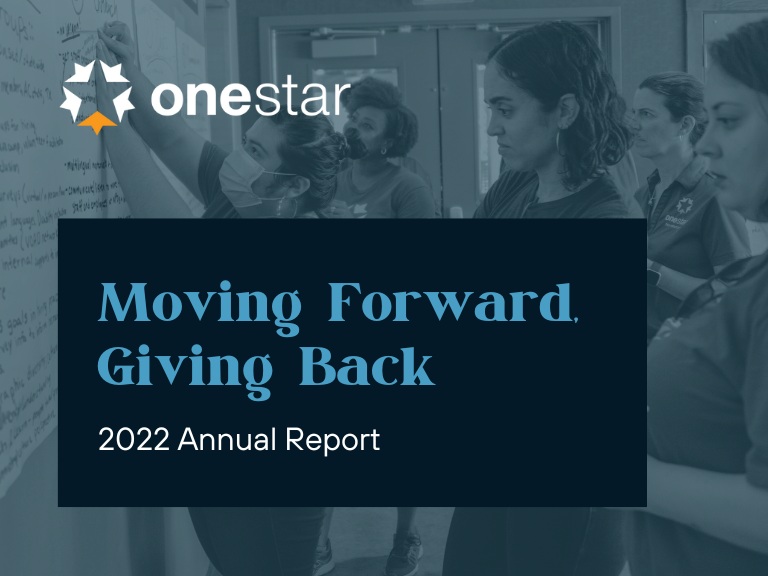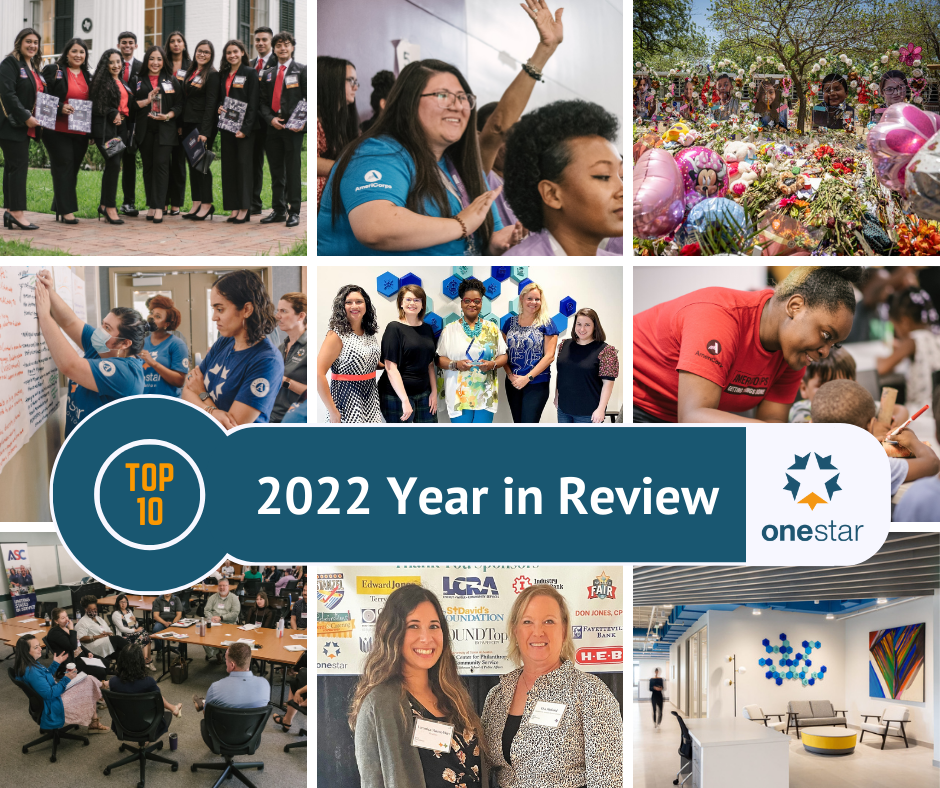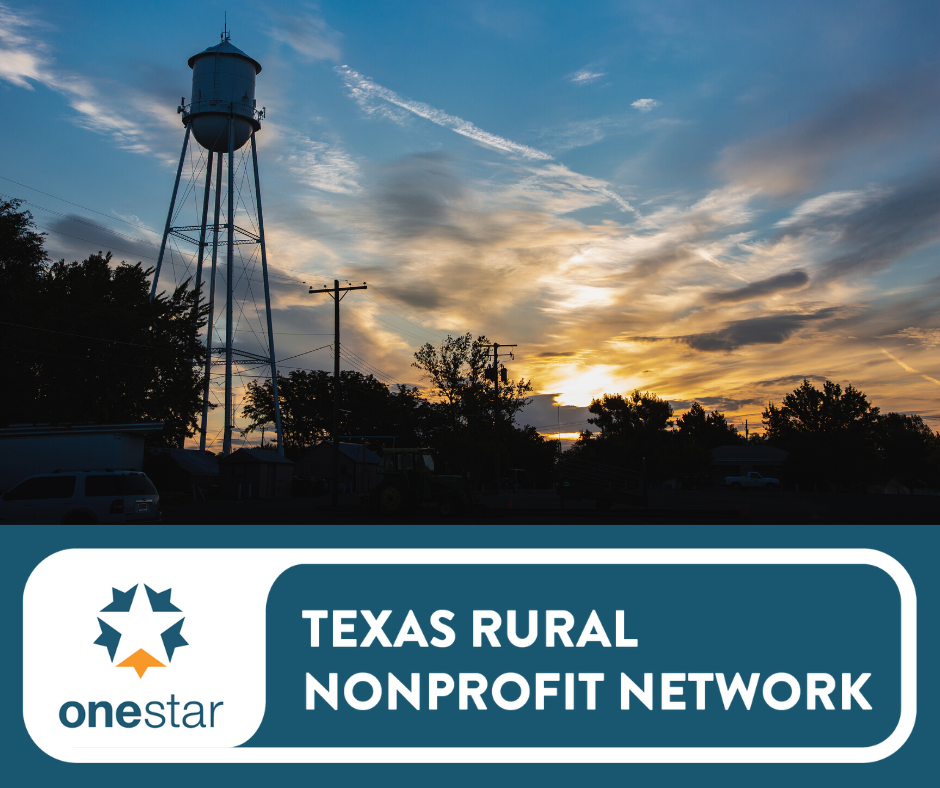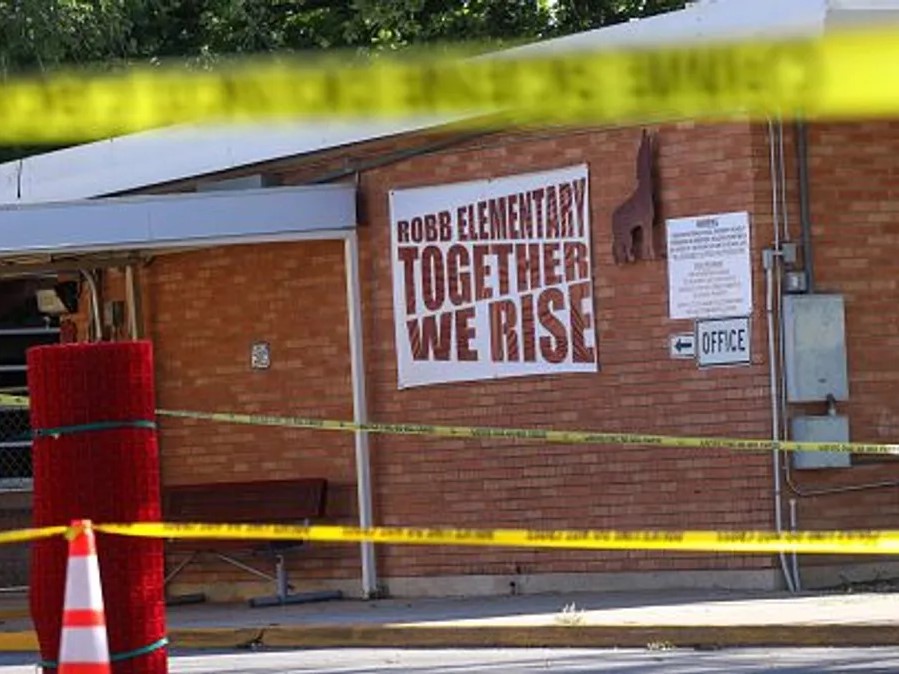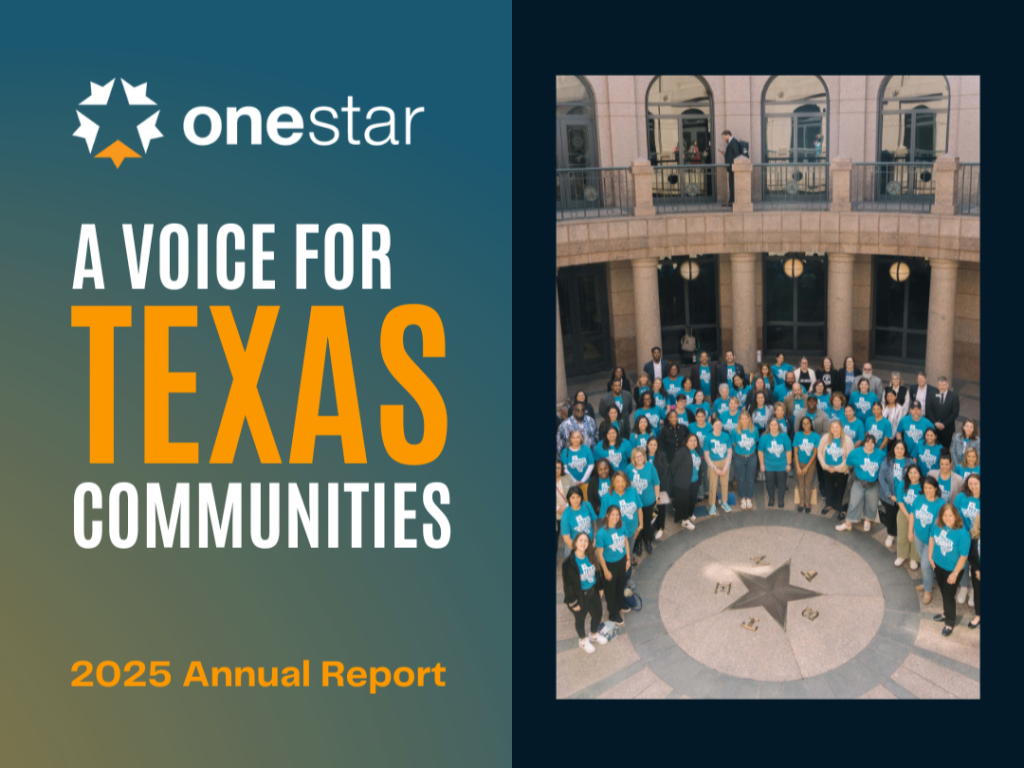
A Voice for Texas Communities: OneStar 2025 Annual Report
We are pleased to announce the release of the OneStar 2022 Annual Report! This year’s publication features the theme of Moving Forward, Giving Back, which highlights the enormous progress we have made together in fostering more generous and resilient Texas communities.
In addition to showcasing OneStar’s impact and providing transparency into our operations, we prioritized telling the stories of our partners across Texas to illustrate the power of collaboration. Our 2021 Annual Report spotlights specific examples of how OneStar builds capacity for nonprofits doing amazing work in Texas and provides critical support to diverse organizations statewide.
We extend our appreciation to our extraordinary colleagues from Sewa International, Center Against Sexual and Family Violence, Volunteer Houston, Hookset Brother Combat Recovery, Texas Department for State Health Services, United Ways of Texas, and Latinitas, who agreed to have their experiences featured in these pages. This is just a small glimpse of the many valued partners we had the privilege of working with in 2021, and we thank all of you for joining our us in our mission to build stronger Texas communities.
Letter from the CEO: OneStar 2022 Annual Report
2022 was truly our year of coming back together! While we continued to embrace the flexibility of meeting virtually, it was refreshing to finally reunite for face-to-face gatherings. From an award ceremony at the Texas Governor’s Mansion to conferences and a staff retreat, it was heartwarming to see and embrace our friends, partners, and teammates in person.
This was also a year of getting things done with our partners. A few highlights for me: we distributed a record amount of AmeriCorps funding to support an incredible portfolio of national service programs across Texas. We launched Texas Nonprofit Strong in partnership with United Ways of Texas to equip our sector and promote the impact nonprofits have in our communities. And we intensified our efforts to provide accessible programming and resources to rural communities by launching the Texas Rural Nonprofit Network and establishing new rural partnerships.
It was also a year of new beginnings as we moved into a new office in East Austin and opened our first satellite location in Dallas. We are proud to now be a part of the Water Cooler at Pegasus Park, joining a campus of social impact organizations seeking to be more effective through collaboration.
In 2022, we learned yet again that from tragedy comes unity. In the aftermath of the tragic school shooting in Uvalde, OneStar was honored to collaborate with local leaders to launch the Robb School Memorial Fund. Donors from around the world overwhelmed us with their outpouring of support. I was moved and deeply grateful to each of our community partners that stepped forward to help bring support to Uvalde.
One consistent theme the past year has demonstrated is what becomes possible when we work together. As I enter my fourth year leading OneStar, I am grateful for the hard work of this dedicated team to create a stable foundation for our work, even when the world is changing so much around us. I am excited to see how we continue to calibrate and build in the upcoming year. Thank you for being with us every step of the way.
Sincerely,
Chris Bugbee
President & CEO

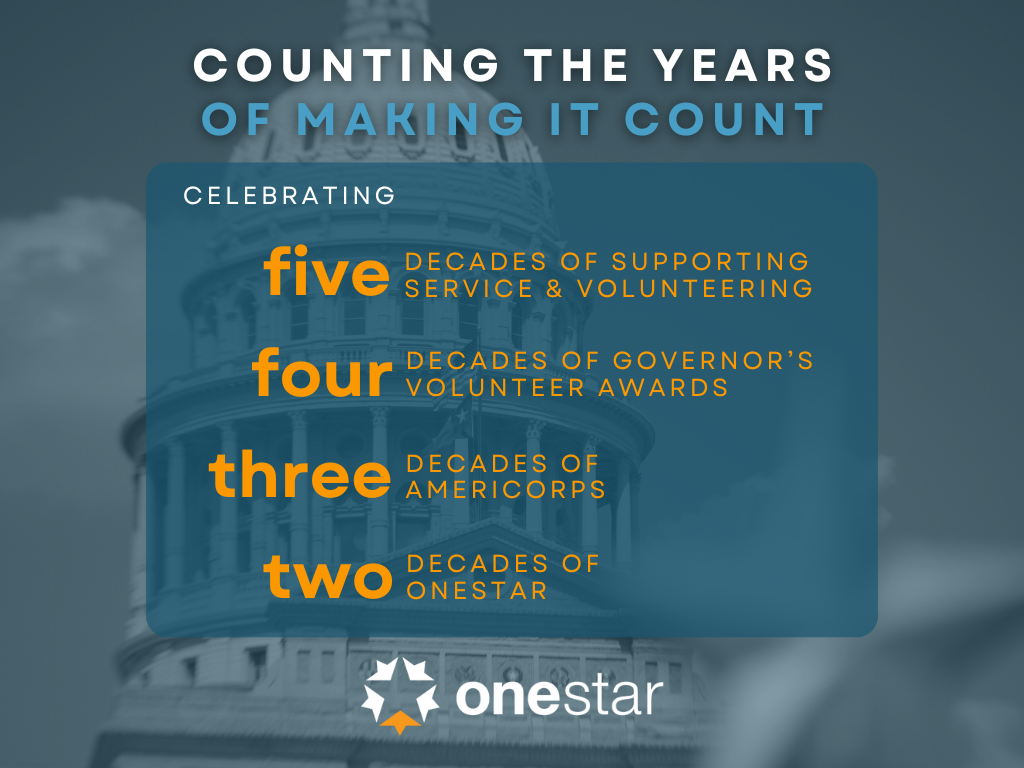
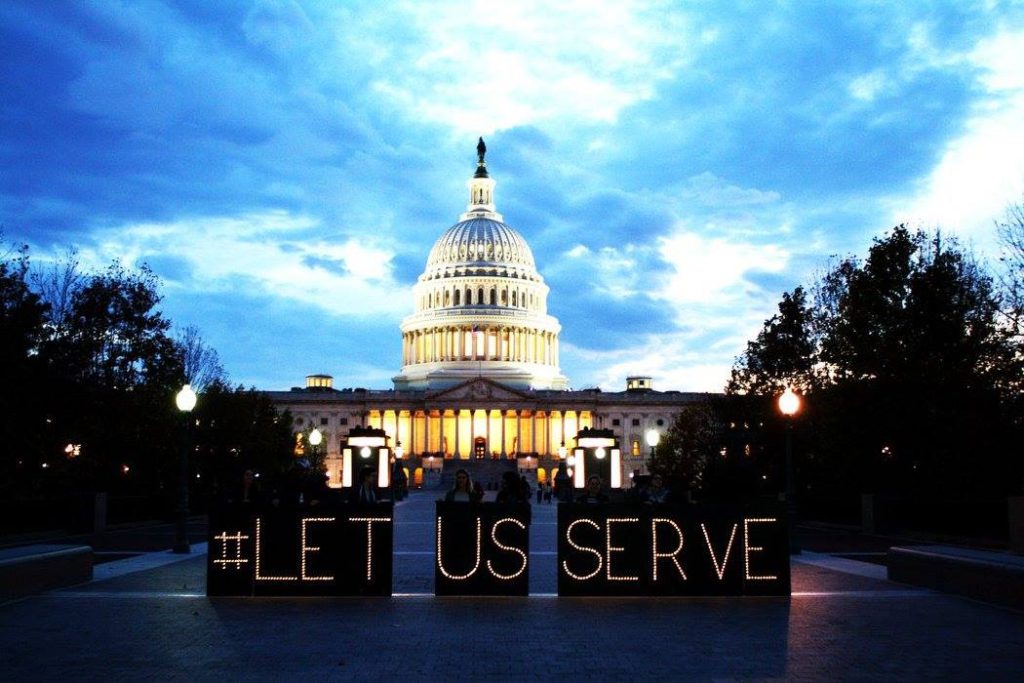
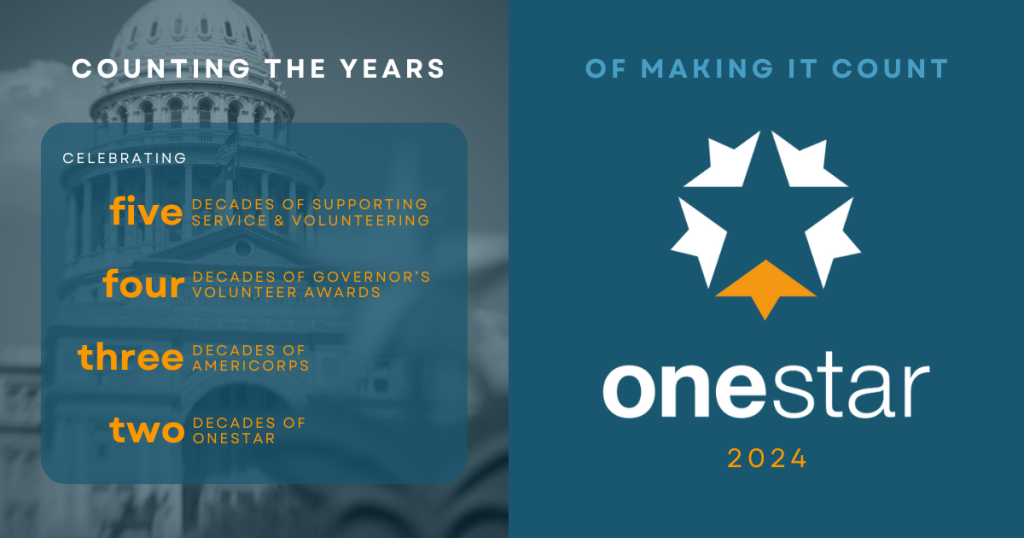
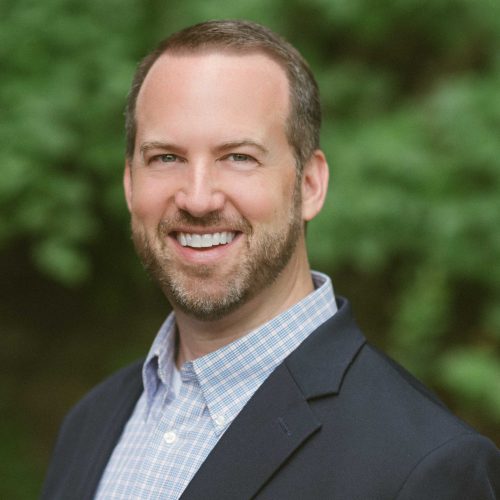 Chris Bugbee
Chris Bugbee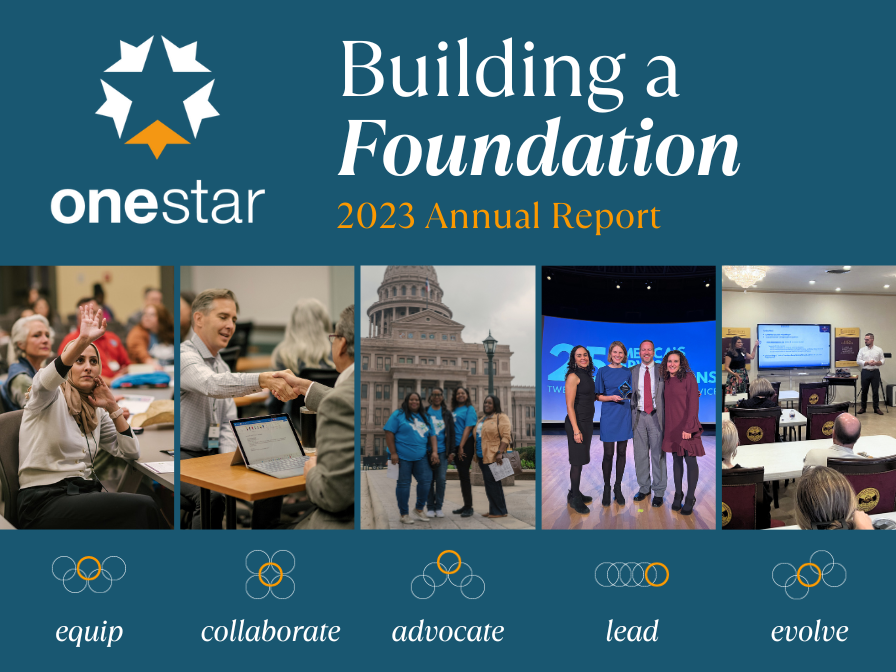
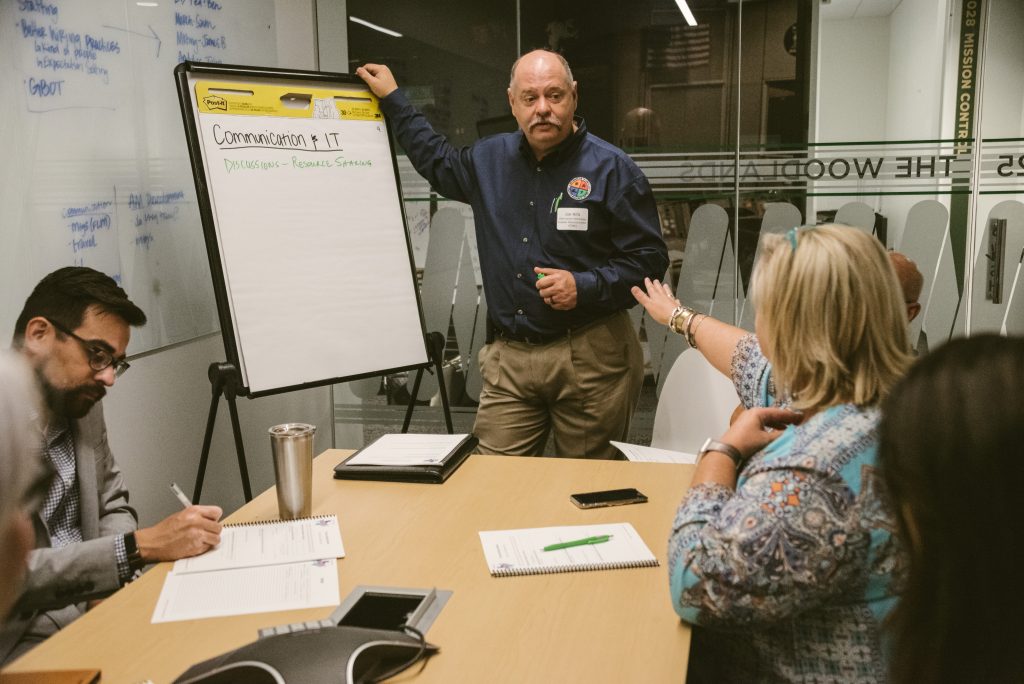
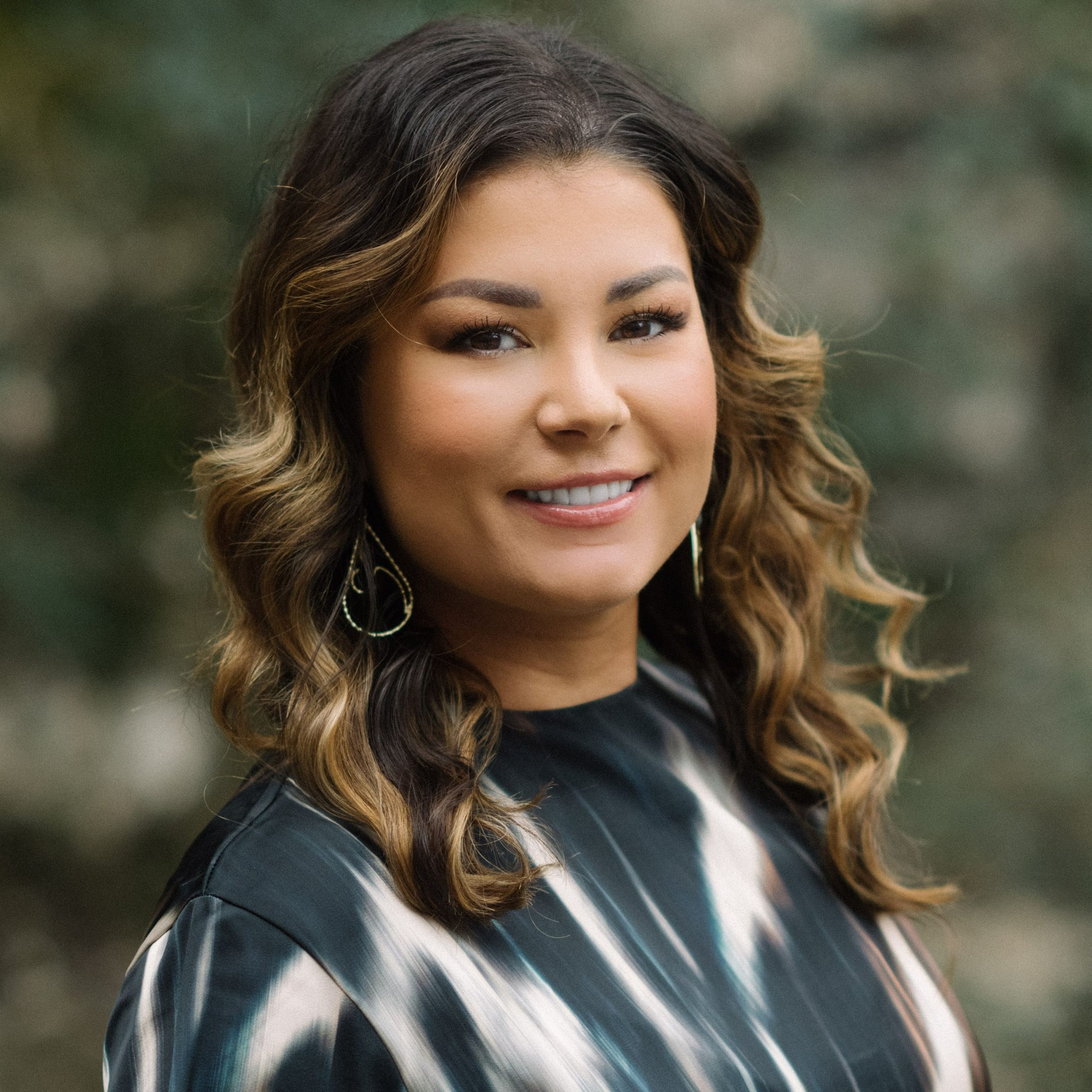 Michelle Vryn
Michelle Vryn